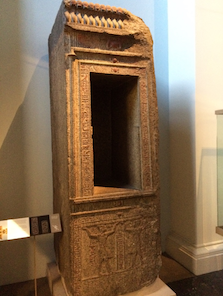Bes
protector of the hearth
alignment: good

"Bes was a very ancient god of Hikuptah, a hearth deity who was invoked to protect households. He was associated most especially with mothers, children, and goodness. Statues and figurines of Bes have been found in many modern archaeological digs, and it is believed that most homes had some symbol of Bes at the 'hearth altar', a cabinet or small area set into the wall where family deities and protection charms were kept."

"In
The Book of the White River, an ancient text of Hikuptan liturgical rituals, Bes is described as large, broad-shouldered, and bearded. He does not travel, but sees the world through his idols, so families are wise to place their hearth altar somewhere in the house where he can see and protect the entrance.
There was a Temple of Bes is every city of Hikuptah, with the one in Minaa being the largest. The priests of his temples could be male or female, and performed elaborate rituals at the beginning of the harvest and tax seasons, and their services were often called upon to help with fertility, to deliver births and bless newborns, and to act as pediatricians.
The typical religious ceremony involved the priests wearing a Bes mask or costume. To protect the area from wrongdoing the priests would and walk around it several times holding a lamp of burning oil, reciting prayers and sprinkling unused oil into the area. The largest and longest rituals were those at the start of the harvest and tax seasons, when the entire city would have to be blessed. None of the ceremonies involved a sacrifice, but offerings of food or money to Bes or his temple were often given."




